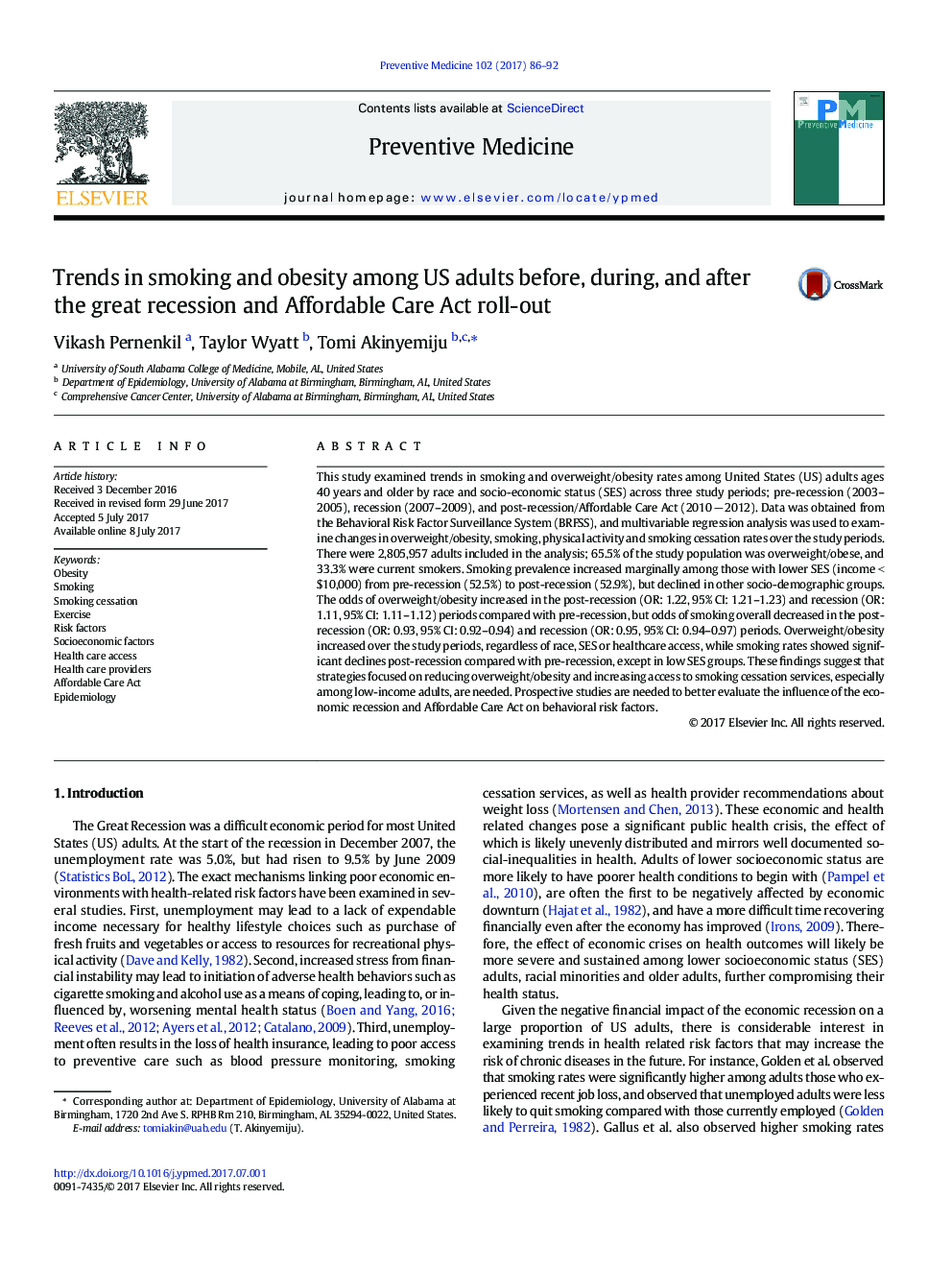| Article ID | Journal | Published Year | Pages | File Type |
|---|---|---|---|---|
| 5635573 | Preventive Medicine | 2017 | 7 Pages |
â¢Overweight and obesity rates increased regardless of race, SES or healthcare access.â¢Smoking rates declined post-recession, except among the lowest income groups.â¢Smoking cessation rates increased among all groups post-recession.â¢Strategies to further increase smoking cessation among low-income adults are needed.â¢Efforts to reduce overweight and obesity among US adults is urgently needed.
This study examined trends in smoking and overweight/obesity rates among United States (US) adults ages 40 years and older by race and socio-economic status (SES) across three study periods; pre-recession (2003-2005), recession (2007-2009), and post-recession/Affordable Care Act (2010 â 2012). Data was obtained from the Behavioral Risk Factor Surveillance System (BRFSS), and multivariable regression analysis was used to examine changes in overweight/obesity, smoking, physical activity and smoking cessation rates over the study periods. There were 2,805,957 adults included in the analysis; 65.5% of the study population was overweight/obese, and 33.3% were current smokers. Smoking prevalence increased marginally among those with lower SES (income < $10,000) from pre-recession (52.5%) to post-recession (52.9%), but declined in other socio-demographic groups. The odds of overweight/obesity increased in the post-recession (OR: 1.22, 95% CI: 1.21-1.23) and recession (OR: 1.11, 95% CI: 1.11-1.12) periods compared with pre-recession, but odds of smoking overall decreased in the post-recession (OR: 0.93, 95% CI: 0.92-0.94) and recession (OR: 0.95, 95% CI: 0.94-0.97) periods. Overweight/obesity increased over the study periods, regardless of race, SES or healthcare access, while smoking rates showed significant declines post-recession compared with pre-recession, except in low SES groups. These findings suggest that strategies focused on reducing overweight/obesity and increasing access to smoking cessation services, especially among low-income adults, are needed. Prospective studies are needed to better evaluate the influence of the economic recession and Affordable Care Act on behavioral risk factors.
